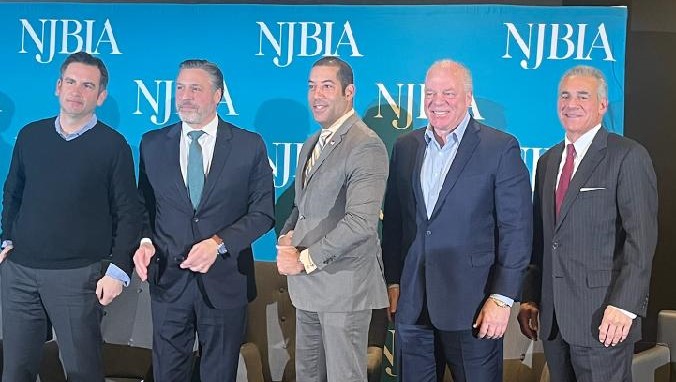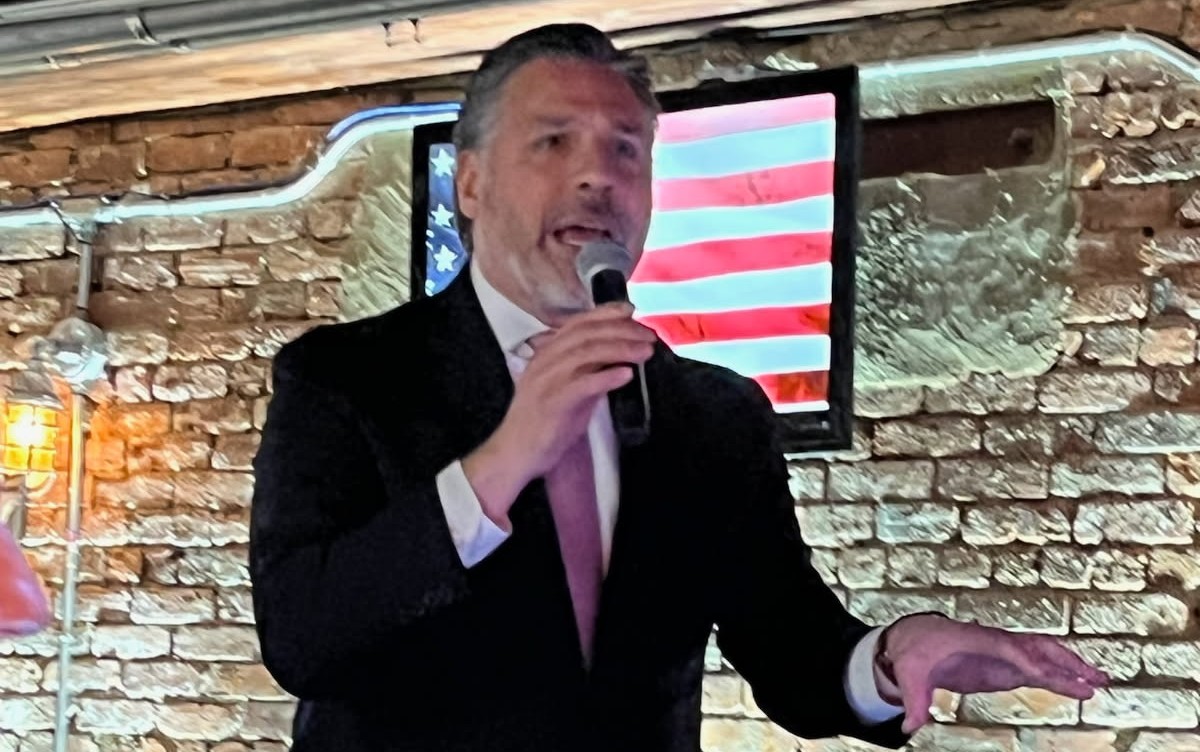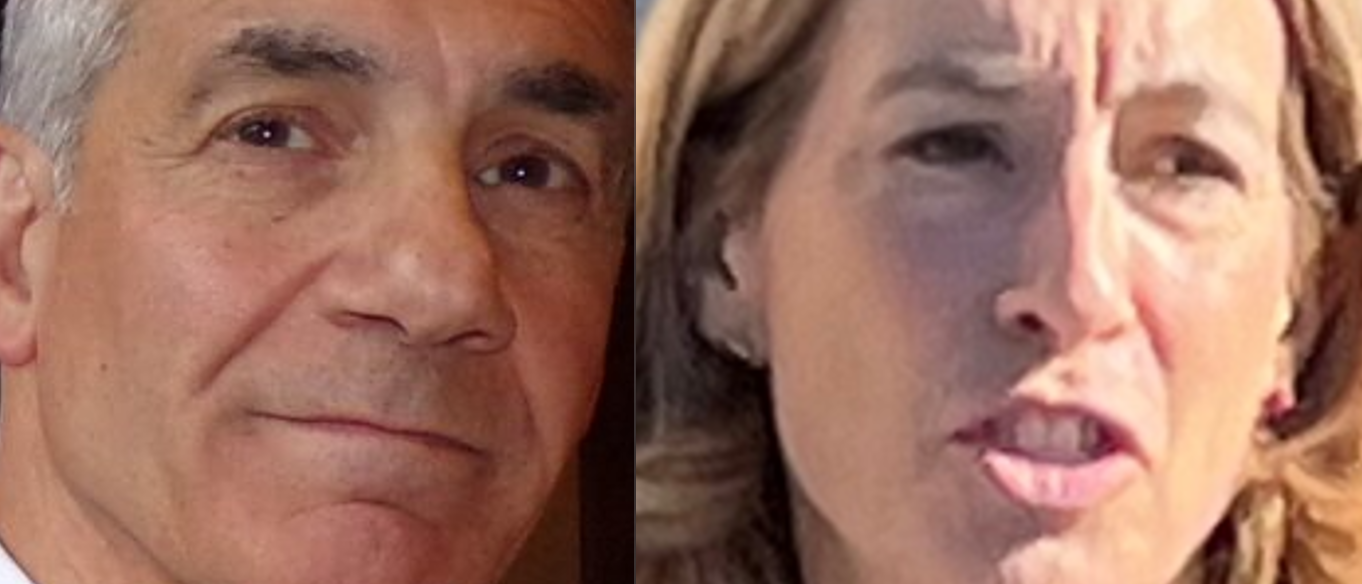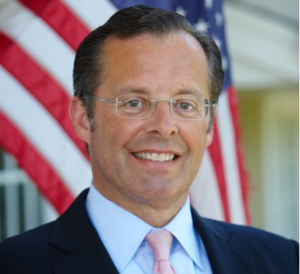
WOODBRIDGE – No, it wasn’t actually a lovefest, but everyone was pretty chummy.
Five of the 10 announced 2025 gubernatorial candidates (three Democrats and two Republicans) converged Wednesday for an hour-long discussion sponsored by the New Jersey Business and Industry Association at a local hotel.
The questions, naturally, tended to be business and finance oriented, which was no surprise.
It also was no surprise that when a question about property taxes popped up – quite the perennial New Jersey issue – most of the candidates talked around the issue,
For the record, those on stage were Republicans Jack Ciattarelli and Bill Spadea and Democrats Sean Spiller, Steve Sweeney and Steve Fulop.
Those missing were Republicans Jon Bramnick and Ed Durr and Democrats Mike Sherrill, Josh Gottheimer and Ras Baraka.
The property tax question was simply stated – how can they be reduced?
It is true, as was noted, that the state neither levies nor collects property taxes, Still, state policy has an impact.
Sweeney, a one-time Senate President, talked about decisions made at the local level to cut costs – like when the county commissioners in his home county of Gloucester closed their local jail and reached agreements to send inmates elsewhere.
Spiller, the president of the state teachers’ union, said more state investment or aid to local governments can lessen a school district or town’s reliance on property taxes.
Spadea, a radio host on 101.5, went far afield, talking about how the overall state budget has grown to an estimated $56 billion. He also talked about illegal immigration.
Fulop, the mayor of Jersey City, probably gave the best answer.
He said there is “too much government” and that consolidating services was a must. This has been proposed many times, but in a state that’s committed to “home rule,” it’s gone nowhere.
That prompted Fulop to say thinking on that topic needs to change.
Ciattarelli, the GOP’s 2021 candidate, acknowledged the status quo, adding that the state must offer incentives to encourage mergers and consolidations. He also said that sprawl tends to increase property taxes and that it is essential to channel growth or redevelopment into urban areas. A new school aid formula is also needed, he said.
Property taxes have been a major problem in New Jersey forever.
A cynic would say that home rule, which perpetuates the status quo, will never be defeated. Still, the question has to be asked.
More generally, given the fact this was a business group, all candidates on stage in varying degrees pledged to support business interests.
Ciattarelli said the state’s corporate tax of 11.5 percent should be drastically cut.
Spadea agreed, adding that the state is “over-regulated.”
Fulop wants people to look at what he’s done in Jersey City, where the downtown is especially vibrant. He called his city one of the state’s economic success stories.
As the forum ended, Michele N. Siekerka, the NJBIA president and CEO, said it seemed as if there was more agreement among the divergent group than disagreement.
The genteel setting may have contributed to that.
Still, some philosophical division surfaced.
Discussing the high cost of childcare, Spadea – true to his right-wing roots – was the only candidate to suggest that moms who stay at home need government support – like maybe a tax credit.
Fulop took exception.
He called that idea a “talking point” and not a real solution.
On this day, that passed for a fiery exchange.
(Visited 81 times, 81 visits today)
Insider NJ recently hosted an event where participants engaged in a civil discussion on a variety of important topics. The event brought together individuals from different backgrounds and perspectives to have an open and respectful dialogue.
One of the key aspects of the event was the emphasis on listening and understanding each other’s viewpoints. Participants were encouraged to actively listen to others without interrupting or dismissing their opinions. This created a space where everyone felt heard and respected, leading to more productive and meaningful conversations.
The topics discussed ranged from politics and current events to social issues and community concerns. Despite the diversity of opinions in the room, participants were able to have constructive conversations without resorting to personal attacks or hostility.
One of the reasons why the discussion was so successful was the facilitation of a neutral moderator who ensured that everyone had a chance to speak and that the conversation remained focused and respectful. This helped to prevent any potential conflicts or misunderstandings from escalating.
Overall, the event was a great example of how civil discourse can lead to greater understanding and cooperation among individuals with differing viewpoints. By listening to each other and engaging in respectful dialogue, participants were able to find common ground and work towards solutions to complex issues.
In a time when political polarization and divisiveness are rampant, events like this serve as a reminder that it is possible to have civil discussions and find common ground, even with those who may have different beliefs or values. It is important for individuals to continue engaging in these types of conversations in order to foster understanding and promote positive change in our communities.



